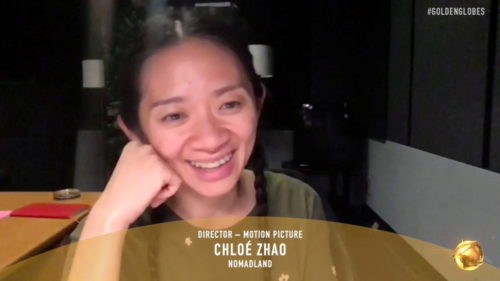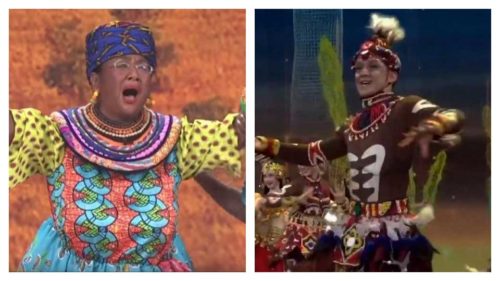Why Chinese students don’t need ‘English’ names

There is a segment of the population in the U.S. and the UK that is patently uncomfortable with the idea of Fatima or Qingqing wielding an American or British passport. Please let those people stew in their discomfort.
Illustration by Anna Vignet

History is filled with examples of individuals who have changed their names as external indicators of internal transformations. This kind of “rebranding” is common practice among revolutionaries: Pancho Villa, Leon Trotsky, Ho Chi Minh, and Vladimir Lenin all have birth certificates that bear little resemblance to their tombstones. Ras Tafari Makonnen became Haile Selassie, Emperor of Ethiopia. Kentucky-born and raised Cassius Clay took on the name Muhammad Ali as an adult. In one of the Bible’s most remarkable transformation stories, the exceptionally devout Jewish priest Saul was greeted by the Holy Spirit on the road to Damascus and subsequently transformed. Although he once denounced and persecuted believers of the “heretic” Jesus, Saul experienced an epiphany of the highest order. In the process, he became Paul, one of Christianity’s most famous apostles.
I, too, changed my name (sort of) at one point: When I left my small town for my freshman year in college, I introduced myself to people as “Becka” instead of “Becky.” “Becky” was a girl who hung out at the mall and hoped for sidelong glances from boys, but “Becka” was an educated woman on her way in the world. I recognize the value of changing one’s moniker to reflect a new (or newly public identity). Whether a nom de plume, nom de guerre, or stage name, changing your name is an outward indication of your changed (or changing) identity.
I have taught English to native and non-native speaking students of all ages for the past 16 years, and 98 percent of my Chinese students have taken an “English name.” Those names range from the sublime — Athena and Artemis — to the ridiculous — Potato and Bluebuff. While most foreign teachers of English in China accept this name-duality as the status quo, as a foregone and unassailable reality of teaching in China, I’ve never been comfortable with this. I just don’t love this practice, and I want all students to reconsider their participation in this social trend. Names are not just names, but markers of complicated identity politics. Please allow me to pontificate (as most teachers are wont to do).
1. No one else in the world does this.
I have asked many Chinese teachers of English, scholars of Chinese culture, and long-term foreign residents of China, and no one can provide me with a succinct answer to the question of why this adoption of the “English name” is so ubiquitous in China. When I taught in the Middle East, Eastern Europe, and Latin America, my students did not pick “English names.” Their names were equally difficult to pronounce, in my opinion, but there was no expectation to adopt a moniker from the West. Occasionally Yousef became “Joe” or Timeam became “Tim” or “Catalina” became Catie, but by and large my Arab and Brazilian and Romanian students remained precisely who they had always been. There was no expectation that they would have to develop an Americanized, Anglicized alter ego.
2. There is no such thing as an “English name” anymore.
In my first year teaching in China, one of the students in my Year 11 class was named Carlos. When I taught in Honduras my roll-book was chock-full of Carloses, but when I moved to China and began teaching at an English-medium, Australian-curriculum international school, I balked when I saw the name “Carlos” on my roster. “Carlos is not an English name,” I thought. “What the hell is this?!”
The name Carlos has unmistakable Spanish origins, yet my reaction points to a larger question: What makes a name an “English” one? There are millions of American citizens named Carlos, citizens who linguistically and culturally check all the boxes of what we have collectively decided that Americans do: shop at Target, pay taxes, drive SUVs, play Candy Crush, coach their little kids’ baseball team, etc. If this hypothetical Carlos is fully American, why could Carlos not be considered a fully “American name”? Similarly, there are plenty of Australians and Canadians named Dong and Zainab and Aziz and Soo-young — so why should Chinese students cling to Cindy and Dylan and Michelle as indicators of “Westernness”?
I would argue that when Chinese students choose “English names,” they’re actually choosing white names, names that hearken back to a period of our history when the majority of the population was of Anglo-Saxon origin — or felt compelled to assimilate. We don’t live in that America anymore, however, much to the chagrin of millions of Trump voters. Please don’t play into that whitewashed, Eurocentric notion of Americanness.
As you may know, there is considerable tension between the faction that wants to “Make America Great Again” — to return to a completely fictional past that was hegemonic, safe, problem-free, and mono-ethnic — and those of us who embrace our nation’s history of ethnic, racial, and religious diversity. Truthfully, the U.S. has never had a period in its history that was completely safe, problem-free, and mono-ethnic (although we have had several decades of hegemony). This tension is not uniquely American: much of the political skirmish over Brexit, the United Kingdom’s potential departure from the European Union, is arguably a referendum on the racial and ethnic composition of the UK. If the borders are porous and Svetlana and Boris and Ioana can easily move to Britain, get jobs, and eventually apply for citizenship, where does that leave John and Penelope and Julia?
There is a large segment of the population in the U.S. and the UK that is patently uncomfortable with the idea of Fatima or Qingqing wielding an American or British passport. Please, please let those people stew in their discomfort. The truth is that Bobby and Sally are no more American than Jamal and Shanice and Demetrius. When you choose a very white “English” name, you’re reinforcing a worldview steeped in racism, a worldview that I actively denounce.
3. You can be you, learning whatever language you want to learn.
I have always been uncomfortable with the idea that a language learner needs to adopt a new name in order to be fully committed to the language and its attached culture. From my first days in sixth-grade Spanish class, when I was given a mimeographed list of common girls’ nombres and told to pick one, I didn’t subscribe to this theory. Why can’t I be Rebeka and learn Spanish? Why must I be “Breza” or “Carmen”? When I began learning Italian in college and then Romanian as a Peace Corps Volunteer, I never felt that I had to be anyone other than Rebeka Fergusson-Lutz. When I moved to Qatar and picked up survival Arabic and learned to decode the Arabic alphabet, I was still Rebeka Fergusson-Lutz. When I moved to China and began the struggle of mastering oral Mandarin Chinese, I was still the fully unadulterated Rebeka Fergusson-Lutz. I am who I am and what I am, no matter where I go. Similarly, your essence remains unchanged, no matter where you live or study. Studying language can be a transformative experience, but you should not need to devise an English-speaking alter ego in order to learn a language.
4. If people care about you, they’ll learn to say it correctly — or they’ll try.
The other day, I decided to call my students only by their official Chinese birth names. For the entire day, I referred to my students only as their parents and grandparents would — but in my heavily accented Mandarin and with the incorrect tones, despite my best efforts. I wanted to show my students that I knew their Chinese names and could use them. It’s true that it is more difficult for me to remember their Chinese names, and even more of a challenge to nail the correct tones, but it’s my responsibility to learn them and I will.
Parents choose their children’s names with great circumspection and love. Even parents who are dysfunctional, absent, or abusive choose their children’s names with care. As such, calling a child by the names that the parent chose, in as close an approximation to the intonation and accent that the parent uses, is an act of respect. This is a way that teachers communicate to parents, “I’m going to take care of your most prized possession and your greatest achievement in life. Don’t worry.”
I have a good Aussie friend whose parents named him Hong Kong — yes, Hong Kong Nguyen. For these immigrant parents, Hong Kong was a glittering oasis of economic opportunity, mind-blowing technological advancement, and progressive Asian thinking. For these scrappy Vietnamese laborers, Hong Kong was a place of hope and fashion, of glitz and success. Departing from tradition in order to name a child “Hong Kong” shows these parents’ keen desire to encapsulate all these powerful associations into this tiny baby, this tiny baby that would grow up to be a man who could embody these dreams. Who am I to say that such a name is “stupid”? Why would I dare suggest that he use “Harold” or “Howard” instead?
If your foreign teacher repeatedly bastardizes your name in order to be “funny” or refers to you with a label that is “easier,” your teacher is actively flouting the intentions of your parents and asserting a brand of cultural superiority that has no place in the classroom. That is a micro-aggression that cannot and should not be ignored.
Ultimately, dear students, I will call you whatever name you prefer. If you’re transitioning genders from Samuel to Samantha, that’s fine. If you’re born “Harold” and prefer “Ryan” for various reasons, I’m happy to oblige you. If you want to be called “Sabre” or “Muffin,” okay. But my dear Chinese students, please consider keeping your names in the English classroom and while living and working abroad.






